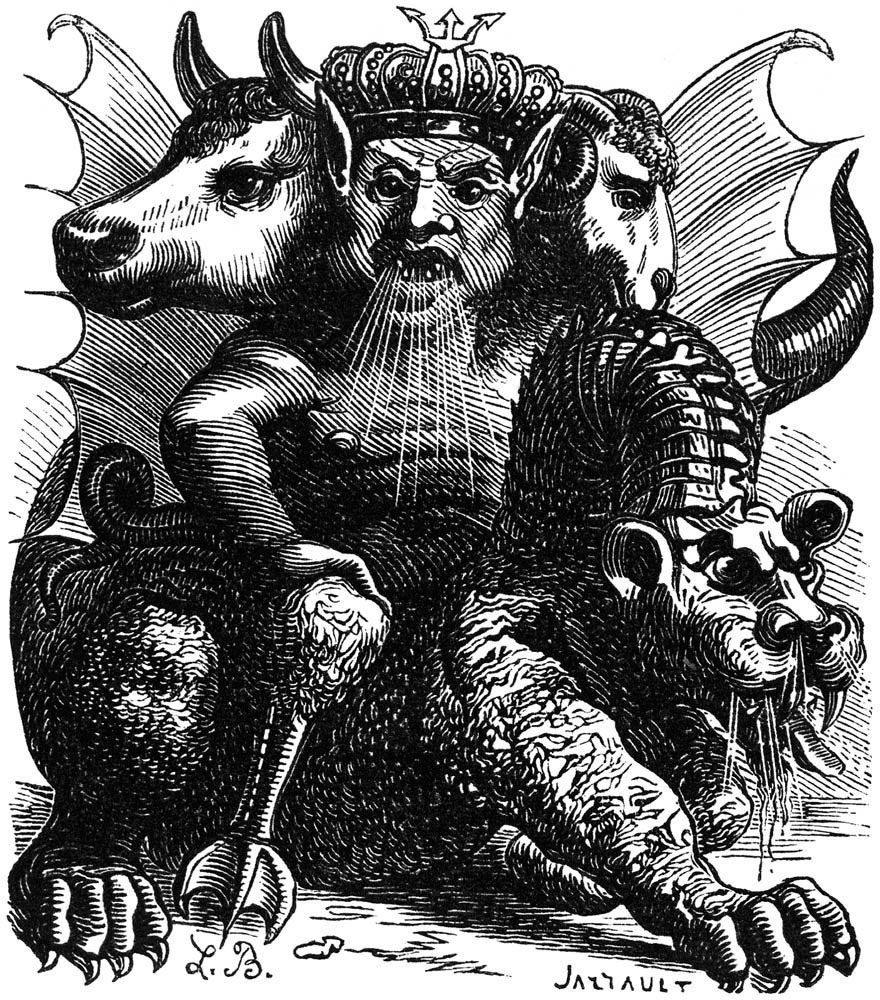Difference between revisions of "Asmoday"
Jump to navigation
Jump to search
(Created with content derivved from Wikipedia) |
|||
| Line 1: | Line 1: | ||
'''Asmoday''', also known as '''Asmodeus''' (/ˌæzməˈdiːəs/; Ancient Greek: Ἀσμοδαῖος, Asmodaios) or '''Ashmedai''' (/ˈæʃmɪˌdaɪ/; Hebrew: אַשְמְדּאָי, ʾAšmədʾāy), as well as '''Asmodevs''', '''Ashema Deva''' or '''Amias''' (see below for other variations), is a prince of [[demons]], or in Judeo-Islamic lore the king of the earthly spirits (shedim/jinn), mostly known from the deuterocanonical Book of Tobit, in which he is the primary antagonist. In [[Peter Binsfeld]]'s classification of demons, Asmodeus represents lust. The demon is also mentioned in some Talmudic legends; for instance, in the story of the construction of the Temple of Solomon. | [[File:Asmodeus.jpg|thumb|The demon Asmoday]]'''Asmoday''', also known as '''Asmodeus''' (/ˌæzməˈdiːəs/; Ancient Greek: Ἀσμοδαῖος, Asmodaios) or '''Ashmedai''' (/ˈæʃmɪˌdaɪ/; Hebrew: אַשְמְדּאָי, ʾAšmədʾāy), as well as '''Asmodevs''', '''Ashema Deva''' or '''Amias''' (see below for other variations), is a prince of [[demons]], or in Judeo-Islamic lore the king of the earthly spirits (shedim/jinn), mostly known from the deuterocanonical Book of Tobit, in which he is the primary antagonist. In [[Peter Binsfeld]]'s classification of demons, Asmodeus represents lust. The demon is also mentioned in some Talmudic legends; for instance, in the story of the construction of the Temple of Solomon. | ||
Revision as of 10:03, 5 December 2021
Asmoday, also known as Asmodeus (/ˌæzməˈdiːəs/; Ancient Greek: Ἀσμοδαῖος, Asmodaios) or Ashmedai (/ˈæʃmɪˌdaɪ/; Hebrew: אַשְמְדּאָי, ʾAšmədʾāy), as well as Asmodevs, Ashema Deva or Amias (see below for other variations), is a prince of demons, or in Judeo-Islamic lore the king of the earthly spirits (shedim/jinn), mostly known from the deuterocanonical Book of Tobit, in which he is the primary antagonist. In Peter Binsfeld's classification of demons, Asmodeus represents lust. The demon is also mentioned in some Talmudic legends; for instance, in the story of the construction of the Temple of Solomon.
